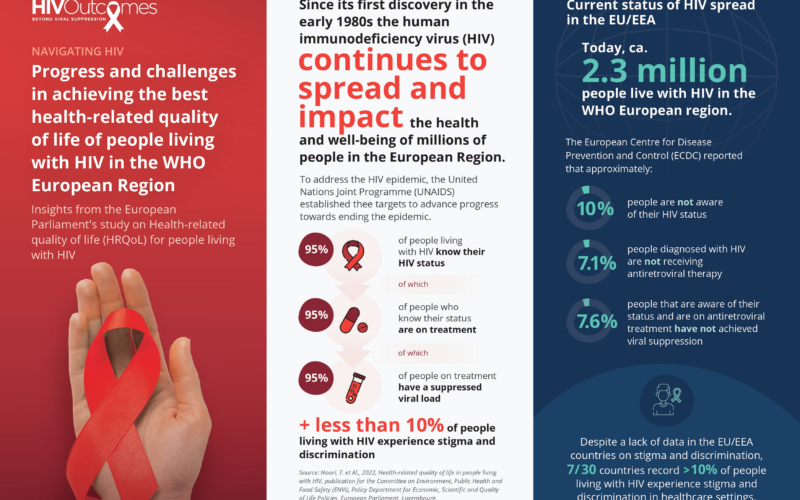
HIV & Ageing: addressing long-term needs
As HIV has become a chronic disease, it has also become invisible.
Life expectancy for people living with HIV has increased rapidly. The number of people aged 50 years or older living with HIV has more than doubled in decade, according to UNAIDS estimates[1].
In the 1980s, HIV was viewed as a fatal illness. Today, it is a chronic and manageable long-term condition. This shift is to be celebrated, but it comes with a price.
People with HIV are more likely to develop and die of other diseases, such as cancer.
People with HIV are more likely to develop additional health conditions and many of these can become fatal. The most common co-morbidities include cancer, kidney failure, bone disease and cardiovascular disease. Mental health issues also affect people with HIV in higher rates than the rest of the population, largely due to persisting HIV-related stigma and discrimination.
In addition, there are the non-HIV burdens of ageing, including decreased mobility, cognitive decline and other comorbidities. New concerns are coming into view: retirement planning, social isolation, later-life relationships[2].
This demands a new policy response, focused on improving health outcomes and quality of life for older people with HIV. This was a key recommendation of the HIV Outcomes multi-stakeholder group[3].
“People living with HIV deserve quality of life. They deserve to live a life that won’t bring them complications in ten, twenty or even fifty years from now,”
RICARDO BAPTISTA LEITE, UNITE
NATIONAL MP, PORTUGAL
How can the global response align with the healthy ageing agenda?
Health and social systems are currently not well-equipped to meet the changing needs of an ageing HIV population. As the global response to HIV is redefined, the focus should be on aligning with the healthy ageing agenda for the general population.
At EU level, there are opportunities to accelerate this work. As the European Commission prepares to publish a Green Paper on Ageing, it should emphasise the need for a holistic long-term approach to health and care[1]. This would benefit older people with HIV by providing person-centred management of comorbidities.
Future models of care should address the specific long-term needs of people with chronic diseases, including HIV. They should, as HIV Outcomes has advocated consistently, focus on improving health-related quality of life and long-term health outcomes. This has the potential to increase the number of healthy life years enjoyed by people with HIV.
Delivering this will not be easy. It requires integrated systems of care delivered by multi-disciplinary teams. Sharing best practices can help to deliver high-quality care across Europe, without the need to reinvent the wheel in each region or Member State.
Care should be evidence-based. However, there is an urgent need for research on the ageing populations with HIV.
Here too, EU institutions have a contribution to make. To enable data-informed policymaking, we have called on the European Parliament to launch a study on the evolution of HIV as a long-term condition. EU4Health, along with Horizon Europe and other funding programmes, can also contribute to building the knowledge base on how best to serve older people with HIV.
At national level, data on HIV, ageing, comorbidities and outcomes should be collected over the long term to boost our understanding of what works in this growing subpopulation.
If we are to rethink the future of HIV care, it is vital that policymaking and service delivery moves beyond outdated paradigms. The welcome advances in life expectancy must now be matched with improved quality of life. It is not enough simply to live; our goal must be to live well.
Luís Mendão, European AIDS Treatment Group (EATG)
Watch the video here.
Ricardo Baptista Leite, President and Founder, UNITE
Member of Parliament, Portugal
Georg Behrens, HIV and T-Cell immunology specialist, Hannover Medical School
Watch the video here.
More updates All









